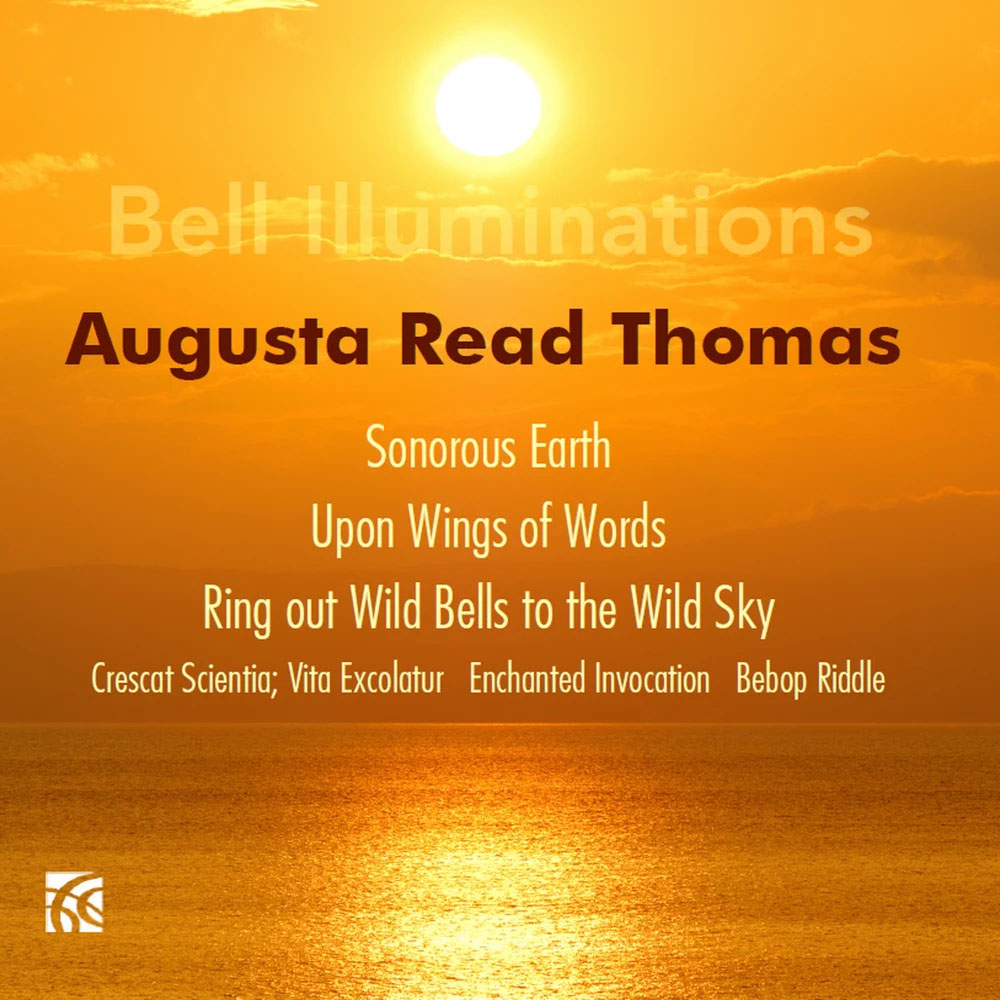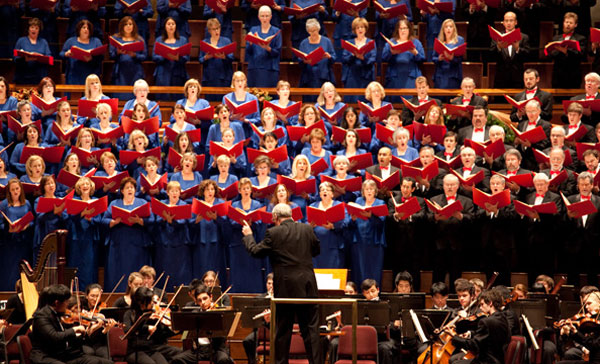solo soprano*, chorus, and 2231/4310/harp/3 percussion/strings
Commissioned and premired on 25 February 2000 by the Choral Arts Society of Washington
Norman Scribner conducting with Carmen Pelton, solo soprano and various brief solos by singers from within the chorus.
Duration: 15 minutes
*NOTE: The solo soprano part could be sung by a soloist or 1/3 of the soprano section from the chorus.

Live, unedited concert performance of the complete work.
Live concert VIDEO and audio recording from World Premiere is available for archival purposes only and for private listening. If you would like to review the recording please contact Augusta.

In Memoriam A. H. H. was published anonymously in 1850 for Tennyson's close friend, Arthur Henry Hallam who died when a blood vessel near his brain suddenly burst in 1833.
In Memoriam A. H. H. was composed between 1833 and 1848. In 1879, Tennyson told James Knowles that the section #9 was 'the first written' section. The fundamental text for this composition is taken from Section 9 and Section 106. Also used, from this book-length poem, are 2 stanzas from the Prologue and the very final stanza.

From In Memoriam A. H. H. (1850)
Section 106
Ring out, wild bells, to the wild sky,
The flying cloud, the frosty light:
The year is dying in the night;
Ring out, wild bells, and let him die.
Ring out the old, ring in the new,
Ring happy bells across the snow:
the year is going, let him go;
Ring out the false, ring in the true.
...Ring in the nobler modes of life,
With sweeter manners, purer laws.
...Ring in the love of truth and right,
Ring in the common love of good.
...Ring out the thousand wars of old,
Ring in the thousand years of peace.
Ring in the valiant man and free,
The larger heart, the kindlier hand;
Ring out the darkness of the land,
Ring in the Christ that is to be.
From In Memoriam A. H. H.
Section 9
Fair ship, that from the Italian shore
Sailest the placid ocean-plains
With my lost Arthur's loved remains,
Spread thy full wings, and waft him o'er.
So draw him home to those that mourn
In vain; a favourable speed
Ruffle thy mirror'd mast, and lead
Thro' prosperous floods his holy urn.
All night no ruder air perplex
Thy sliding keel, till Phosphor, bright
As our pure love, thro' early light
Shall glimmer on the dewy decks.
Sphere all your lights around, above;
Sleep, gentle heavens, before the prow;
Sleep, gentle winds, as he sleeps now,
My Friend, the brother of my love;
My Arthur, whom I shall not see
Till all my widow'd race be run;
Dear as the mother to the son,
More than my brothers are to me.
From Prologue, In Memoriam A. H. H.
Strong Son of God, immortal Love,
Whom we, that have not seen thy face,
By faith and faith alone, embrace,
Believing where we cannot prove;
Forgive these wild and wandering cries,
Confusions of a wasted youth;
Forgive them where they fail in truth,
And in thy wisdom make me wise.
Closing stanza, In Memoriam A. H. H.
That God, which ever lives and loves,
One God, one law, one element,
And one far-off divine event
To which the whole creation moves.
Other Tennyson texts
Three other Tennyson texts are used in this composition. These 3 texts were selected because of their beauty and elegance and also because their meaning illuminates the themes and images of In Memoriam A.H.H.
(NOTE: These 3 texts also collectively illustrate the length and breadth of this poet's work with The Idealist written by Tennyson at age 20 and Crossing the Bar written by Tennyson at age 80.)
from The Idealist (1829)
A mighty matter I rehearse,
A mighty matter undescried;
Come listen all who can.
I am the spirit of a man,
I weave the universe,
And indivisible divide,
Creating all I hear and see.
All souls are centers: I am one,
I am the earth, the stars, the sun,
I am the clouds, the sea.
'This Nature Full of Hints and Mysteries'' (1833)
This nature full of hints and mysteries,
Untrackt conclusions, broken lights and shapes,
This world-reflecting mind, this complex life
Of checks and impulses and counter checks,
Glimpses and aspirations, warnings, failings.
Crossing the Bar (1889)
Sunset and evening star,
And one clear call for me!
And may there be no moaning of the bar,
When I put out to sea,
But such a tide as moving seems asleep,
Too full for sound and foam,
When that which drew from out the boundless deep
Turns again home.
Twilight and evening bell.
And after that the dark!
And may there be no sadness of farewell,
When I embark;
For tho' from out our bourne of Time and Place
The flood may bear me far,
I hope to see my Pilot face to face
When I have crost the bar.
M.L. Rantala, Classical Music Critic, Hyde Park Herald, April 19, 2022
HEADLINE: The bells toll for thee: New music by Augusta Read Thomas
“Ring Out Wild Bells to the Sky” for solo soprano, chorus, and orchestra is given a splendid performance by the Choral Arts Society of Washington, conducted by Norman Scribner with Carmen Pelton as soprano soloist. Bell sounds from the orchestra as well as long, bell-like notes from the chorus join together beautifully. It has the power of a fanfare, the charm of a joyous choir, and the zing of a work that gathers large orchestra forces for a focused musical purpose.
Pelton has a gentleness of tone that gives the music energy and purpose. The chorus has good blend, and Scribner combines all his musical forces with considerable care, all to excellent effect.”
To obtain examination or performance material for any of
Augusta Read Thomas's works, please contact G. Schirmer Inc..
